Ornamental Gardening: Everything A Beginner Needs To Know
Ornamental gardening has been around for a very long time gracing homes with their beautiful appearance. If you are in search of more information on how to create and maintain these gardens, here Corner4men will give you a quick overview with the most basic information to guide you:
Ornamental Gardening Definition
The simplest definition of ornamental gardening is to artistically plant a number of plants on a piece of land. A lot of time and effort goes into planning for such a garden as well as keeping the plants growing strong for their aesthetic value.
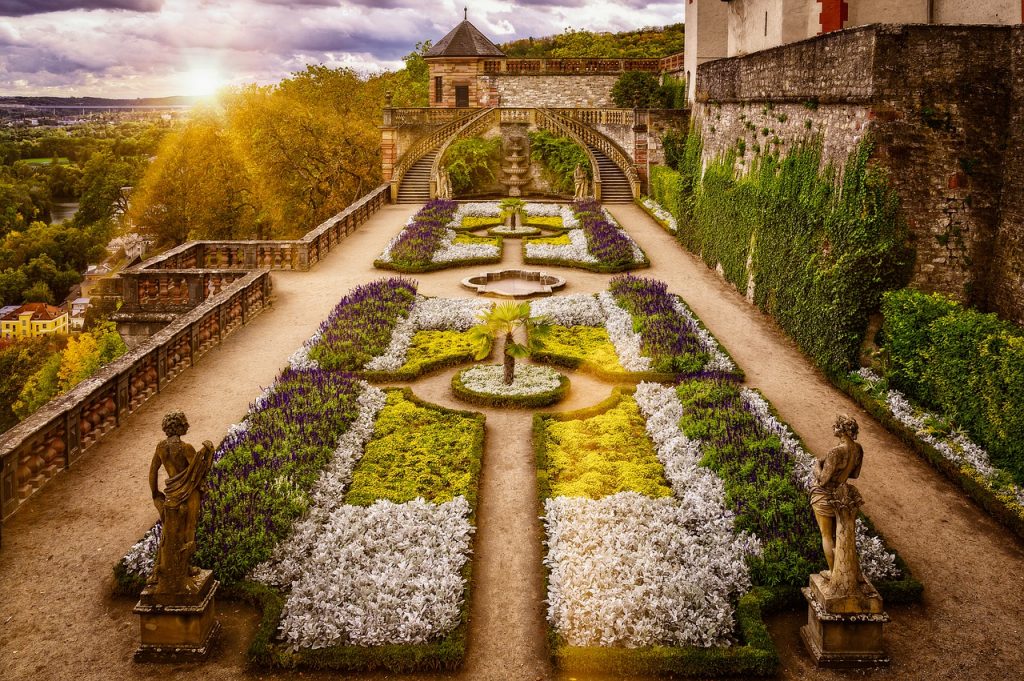
A lot of time and effort go into planning for an ornamental garden
Famous ornamental gardens appear throughout history and across the globe. Some of the most well-known include the Ryoanji Zen garden in Japan, the Versailles in France, and the Keukenhof Gardens in the Netherlands.
Importance Of Ornamental Gardening
One of the most obvious benefits of ornamental gardening is to provide decoration.
As well as pleasing the eyes, they can also have a positive effect on human psychological and physical health. Humans are at the optimal states when surrounded by a well-functioning and balanced environment. Ornamental plants can help maintain the fertility of soil, purify water and air, and even break down waste.
Artistically designed gardens can also boost positive emotions in humans. Research has shown that people’s efficiency and concentration improve greatly when they are exposed to ornamental plants regularly. In fact, having plants in the office can help enhance employees’ productivity and reduce stress.
Types Of Ornamental Gardens
Zen Gardens
Another name for Zen gardens is Japanese rock gardens. This type of ornamental gardening is ideal for those who like a high level of control regarding shrubs, sand, and rocks. However, people who are more likely to be at peace surrounded by natural elements and wildflowers should turn to other types of gardens.
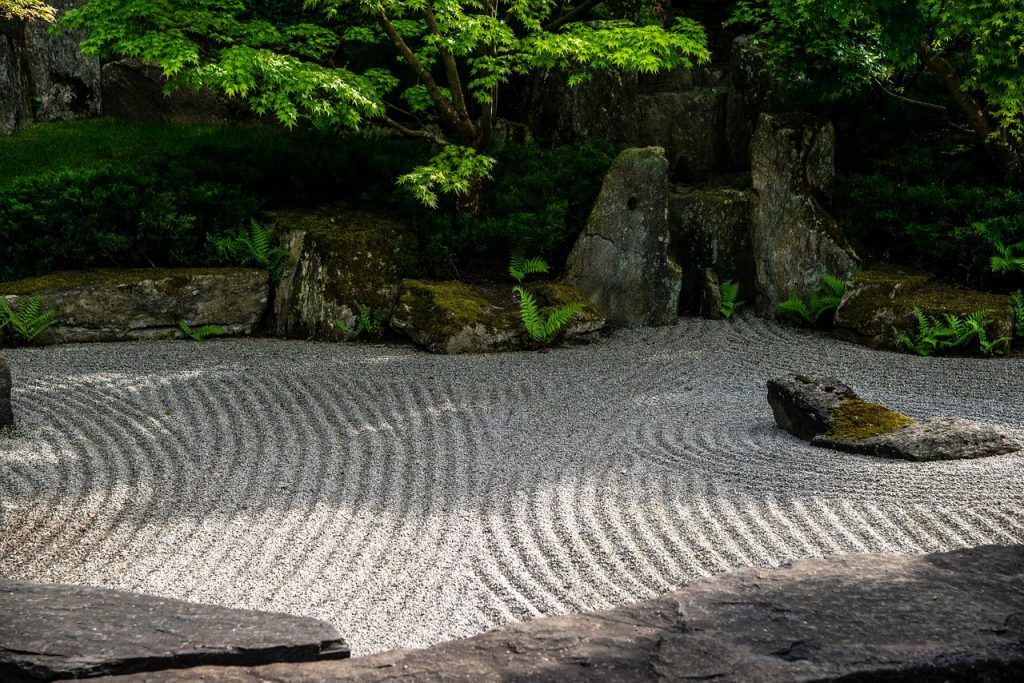
Another name for Zen gardens is Japanese rock gardens
The three principles of Zen gardens are koko (austerity), kanso (simplicity), and shizen (naturalness). The first of such a garden was built in the 6th century by Buddhist monks as a place to meditate. Over time, these places became the venue for the teaching of Zen concepts and principles.
While much of the original structure and garden design has been changed and refined, the basics remain the same.
Korean Gardens
Korean gardens are characterized by their closeness to nature. They usually feature evergreen trees, stone decorations, and ponds. These gardens are designed with their functions and surrounding architecture in mind.
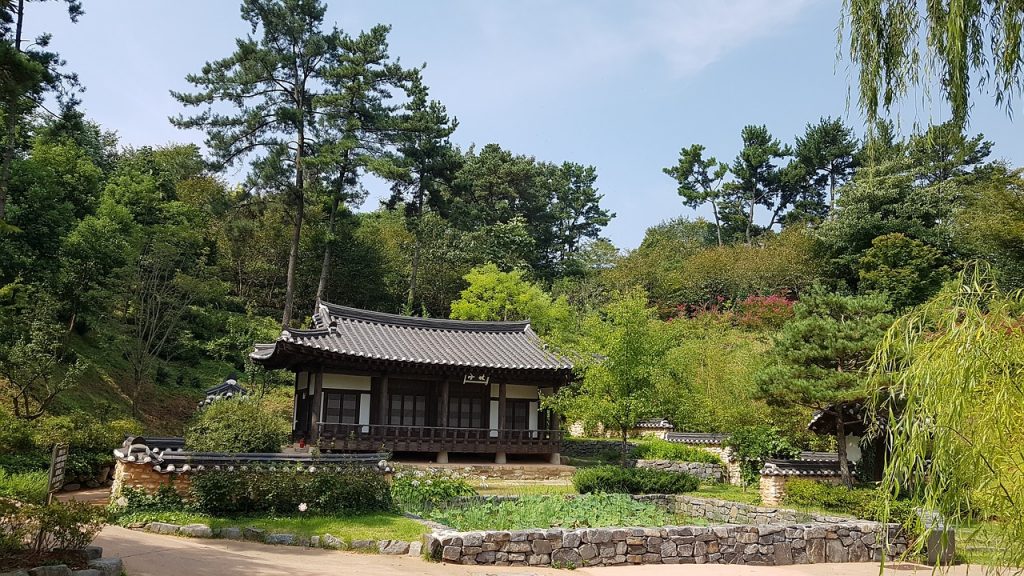
Korean gardens are characterized by their closeness to nature
The location is chosen according to the principles of ‘pungsu’ - the flow of energy that is believed to affect happiness, health, and wealth. Korean ornamental gardening ensures that minimal disruption is done to the surrounding environment. Some even include aspects of nature like the horizon or the mountains to their appearance. Korean gardens can either be walled or blend seamlessly into their surroundings.
Decorations like pavilions and buildings are strategically placed so as not to obstruct the natural look of the garden. Along with plants, philosophical and spiritual symbols are also employed.
Overall, besides the aesthetic values, Korean gardens also hold great importance spiritually and culturally.
Baroque Gardens
Baroque gardens make an impression with the extensive use of patterns and geometric shapes including triangles, circles, and rectangles. This type of ornamental gardening requires a large amount of land and effort to create their signature dramatic and artistic appearance.
This particular style was incubated and first exercised in Italy during the late 16th century. Some of its earliest examples are the ones in the garden of Villa d'Este, Villa Borghese gardens, and the gardens of the Vatican.
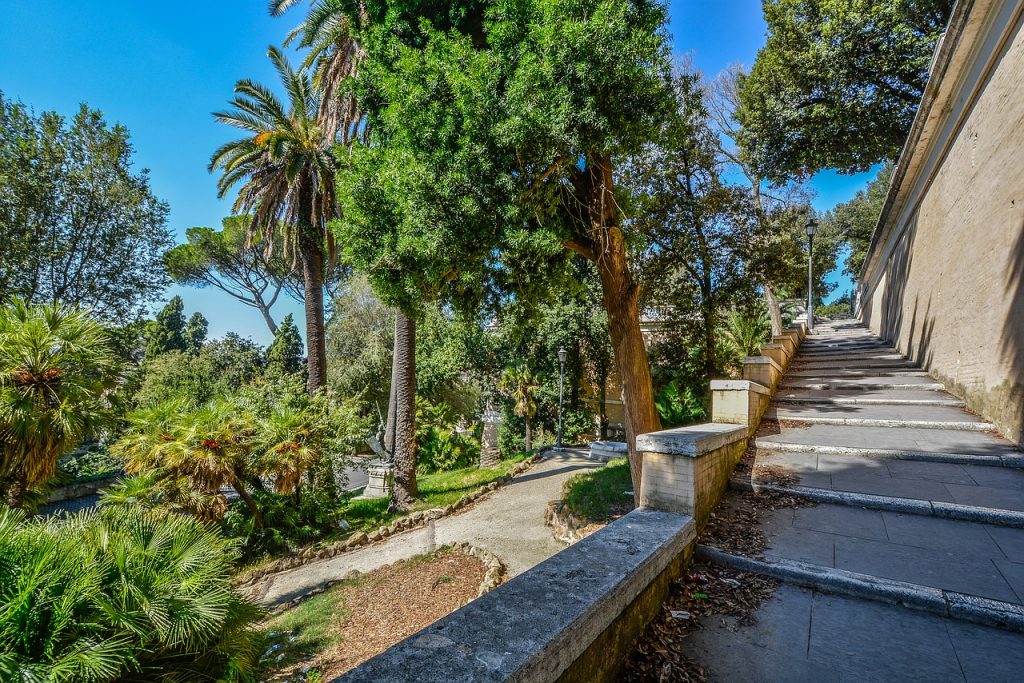
Villa Borghese garden is one of the earliest examples of ornamental gardening in Italy
When its principles were adopted by the French, the style assumed the new name of ‘jardin à la française’ (meaning French formal garden in English). The Gardens of Versailles is one of the largest and most stunning examples in France. It was designed by André Le Nôtre and commissioned by Louis XIV.
Following the example of France, other countries in Europe including Spain, Austria, Russia, and Germany started to adopt ornamental gardening.
However, in the 18th century, the style lost its popularity and was replaced by the English landscape garden style.
Layout Of Ornamental Gardens
Sunlight
The first thing to consider in ornamental gardening and landscaping is sunlight.
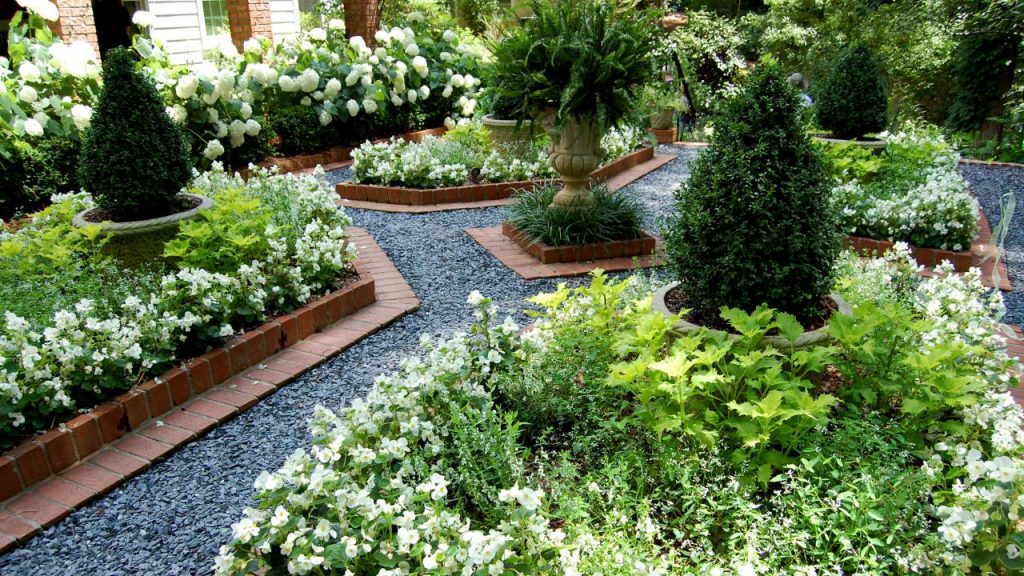
The first thing to consider is sunlight
Many plants thrive in full sun while others need full shade or partial shade. Knowing exactly how much sunlight each part of the intended garden has will determine what type of plants to get and where to put them.
Soil
Another important aspect to investigate before designing your ornamental garden is the soil.
Some plants grow well on wet soil while others have a higher level of drought tolerance. Pairing the right plants with the matching soil will have them grow healthily and beautifully.
Irrigation
If your garden is in an area with constant rainfall, there is no need to water them too often except when drought happens. Plants native to the area are relatively more tolerant to its climate. Once they have established in your garden, they require less water except during periods of serious drought.
Cold Weather
Not many plants can maintain their foliage during winter months so consider adding those that can to your garden to keep part of its appearance intact.
Spacing
Last but not least in ornamental gardening is to calculate the space between plants. They should be left with enough room to grow.
recent articles

Top 5 Most Beautiful Woman In The Philippines - The Finals
Are you seeking the latest top 5 most beautiful woman in the Philippines? Wonder who has the most charming beauty? Keep reading to find out!

Top Types of Jeans Brands
Have you heard of the world's most famous jeans brands? Which brand will have products that complement your personal style? Let’s find out the top 5 best types of jeans brands.

Top best airbnb Philippines you shouldn't miss
Airbnb is the most popular accommodation service today. You can find a variety of accommodations according to your needs.









